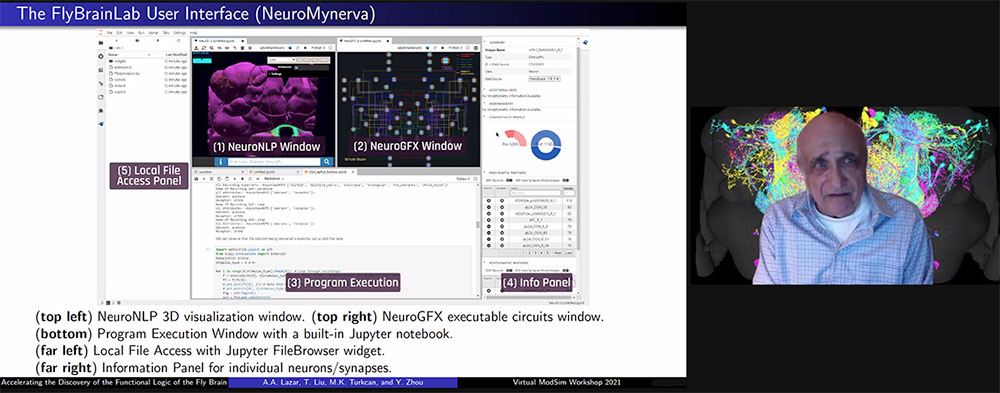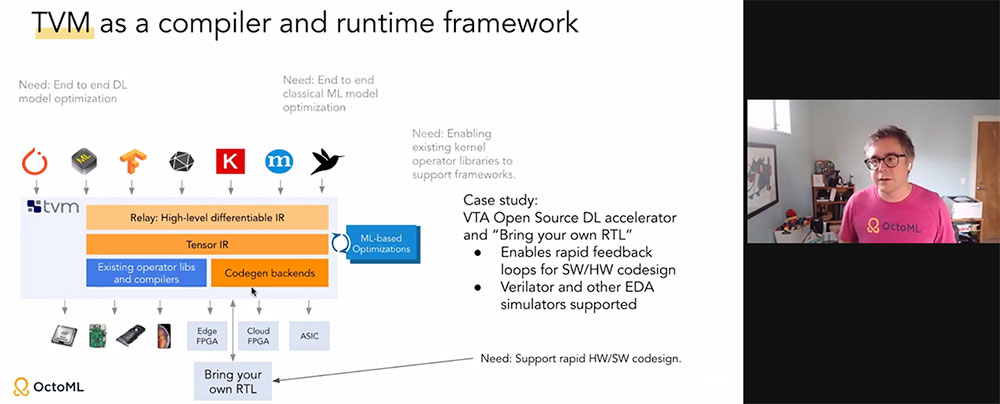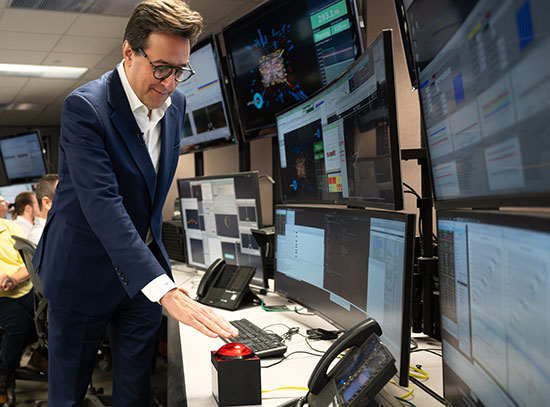ModSim 2021: The Future of Modeling and Simulation Gets a Nod from the Past
November 30, 2021
 enlarge
enlarge
Assistant Professor Sophia Shao, from UC Berkeley, discussed Gemmini, which enables users to explore and evaluate different deep neural network accelerators. Her work earned the inaugural Dr. Sudhakar Yalamanchili Award.
Recently, the Workshop on Modeling & Simulation of Systems and Applications marked its tenth year with a four-day virtual event that took a close look at the impact of artificial intelligence (AI) and machine learning on the field, as well as modeling and simulation’s role in the exponential growth of AI technologies. While the focus of ModSim 2021 was aimed at the future, the event also honored the past by formally presenting the inaugural Dr. Sudhakar Yalamanchili Award to Sophia Shao, an assistant professor with the Electrical Engineering and Computer Sciences department at the University of California, Berkeley, for her work, Enabling Holistic Machine Learning Hardware Evaluation via Full-System Simulation.
Shao presented her research during a multi-part Rapid Fire flash talk/digital poster session, which has become a staple at ModSim workshops that primarily features young talent in this scientific community. This year, eligible presenters were evaluated for the “Sudha Award,” named for the late Regents’ Professor and Joseph M. Pettit Professor in Computer Engineering at the Georgia Institute of Technology. Of all, Shao’s work best demonstrated an “outstanding contribution to ModSim” as voted on the by ModSim 2021 Workshop Organizing Committee.
“While the Committee had hoped the award would be presented with all the fanfare in a face-to-face edition of the workshop in its regular ‘habitat’ in Seattle, we are sure that Sudha himself would have approved of the choice,” said Adolfy Hoisie, Computing for National Security Department Chair within Brookhaven National Laboratory’s Computation Science Initiative and ModSim 2021’s Organizing Committee Chair. “Sophia Shao’s work on Gemmini is giving researchers a window into accelerators with implications for codesign that will impact real-world deployment. It was fascinating work, clearly of Sudha Award caliber and a great marker for our 10th anniversary year.”
 enlarge
enlarge
Professor Aurel A. Lazar, from Columbia University, provided a distinctly different look at modeling and simulation, presenting his work with FlyBrainLab, an interactive computing platform for studying the function of executable circuits constructed from fruit fly brain data.
Although hosted virtually, ModSim 2021 returned to the full session format of prior years, bringing together a mix of more than 70 modeling and simulation experts and practitioners who shared the latest trends and research in areas as diverse as computing architectures, performance analysis, workload characterization, systems design, and modeling/tools advances.
As usual, the invited talks were punctuated by keynote addresses from members of the international computing community. This year, Victoria Coleman, currently Chief Scientist of the United States Air Force and a previous Director of the Defense Advanced Research Projects Agency (DARPA), opened the workshop with a timely look at how ModSim can identify gaps in global supply chains, glean understanding from complex data, and accelerate strategic analyses.
Over four days, ModSim 2021 showcased an assortment of high-quality presentations and interactive panels featuring community experts that addressed the workshop’s theme. Some talks described the impact of AI and machine learning on the development of new methods and tools for modeling and simulation of system and application performance, while others pointed to the penetration and impact of ModSim in the development of new areas and uses of AI and the acceleration of AI computations.
 enlarge
enlarge
Professor Luis Ceze, with the Paul G. Allen School of Computer Science and Engineering at the University of Washington, also is a co-founder of OctoML. He helped closeout the ModSim 2021 workshop with a discussion about improving model performance.
Next year, the hope is that ModSim 2022 will return to the scenic University of Washington Botanic Gardens, where it had been hosted since its inception in 2012. There, Hoisie and the ModSim Organizing Committee expect to continue the energy captured by this long-running premier technical event that has come to be a nexus of ingenuity for the vast community of modeling and simulation researchers, technologists, students, and leaders.
“In its first 10 years, the ModSim workshop has been the place where this community has come together to showcase pioneering ideas, educate future researchers, and address some of its most difficult challenges,” Hoisie said. “I look forward to our next decade of modeling the computing world and how it will continue to grow and change perspectives and capabilities.”
For additional details, including the full agenda and available presentations, visit the Workshop on Modeling & Simulation of Systems and Applications 2021 homepage.
2021-19254 | INT/EXT | Newsroom









